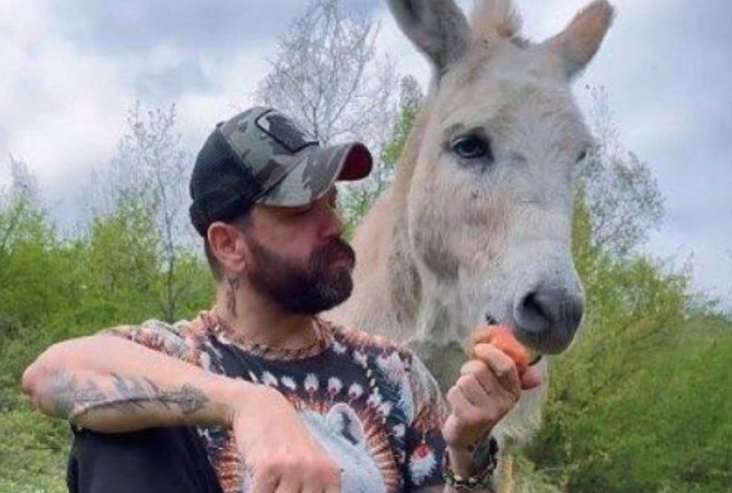My parents were not fond of my husband, Rajan. When I shared the news of our engagement, my mother’s response was sharp—she told me not to reach out to her. Years later, with the arrival of our children, they began to engage with Rajan. We built a life together—a home, children, financial stability—and gradually, they warmed to him.
Then, I discovered my mother shared striking similarities with him.
Rajan, my husband, is reserved, resolute, and unflinchingly straightforward. He grew up in a cramped one-bedroom apartment, sharing space with four brothers and a mother who toiled overnight shifts at a hospital laundry. My parents, on the other hand, immigrated from Egypt to the United States, carving out a life from nothing—earning engineering degrees, securing green cards, and settling into a spacious four-bedroom home in a quiet Minneapolis suburb.
Their vision for my partner was someone “accomplished.” They imagined a man with an advanced degree, a stable home loan, and a last name my mother could say effortlessly. Rajan didn’t fit their mold—no degree, no savings, only a steady, self-assured approach to life, as if the world owed him no favors.
My father stayed mostly silent on the matter. My mother, however, sized Rajan up as if he were a mismatched collection of odds and ends. When I announced our engagement, she didn’t raise her voice. Instead, she said calmly, “Don’t contact me when you realize your mistake.” Then, she ended the call.
For a year and a half, we didn’t speak.
Rajan never uttered a harsh word about her, which frustrated me more than I cared to admit. I was angry, wounded. But when my mother reached out after the birth of our daughter, Alina, Rajan urged me to bridge the gap.
“I know what it’s like to grow up without a mom,” he said. “Don’t let stubbornness define you.”
So, we started to reconnect. Slowly. There were Sunday lunches, tentative smiles over plates of mashed potatoes. My mother offered Rajan backhanded compliments, like, “At least he can handle a grill,” or “You’re fortunate to have found him.”
I’d grip his hand beneath the table. He’d respond with a shrug and refill her tea.
By the time our second child, Sami, arrived, their attitudes softened—not affectionate, but civil. My father began asking Rajan about his work. My mother sent biryani “for the kids” one day. Last year, we even celebrated Thanksgiving together.
I thought the tension had eased. That changed three months ago.
My cousin Hadiya, the family’s unofficial news hub, called me. Her tone was hushed, unusual for her.
“I wasn’t going to tell you,” she began, “but your mom’s been talking to Aunt Nahla about you. About Rajan. About your finances.”
“What about finances?” I pressed.
“She’s worried you’re being taken advantage of. She told Nahla that Rajan’s using your earnings to fund his small business and isn’t pulling his weight. She even claimed she’s been supporting you financially behind the scenes.”
I was floored. Rajan and I have always split our expenses evenly. We’ve never relied on my parents’ money.
When I confronted my mother, she didn’t back down.
“I’m your mother,” she said. “I don’t want you to end up like me.”
Like her?
“What do you mean?” I asked.
That’s when the truth unraveled.
She paused, rubbing her hands on a dish towel, her gaze distant, as if seeing a stranger.
“Your father didn’t provide for us in the beginning,” she said. “I did. My side job at the clinic? That’s what kept the mortgage paid while he was still finding his footing.”
My entire life, I’d seen my father as the pillar, the breadwinner. My mother always presented herself as a homemaker by choice. Now, I learned she had no choice.
“But you always acted like…” I trailed off, stunned. “Why keep it a secret?”
“I didn’t want you to make my mistakes,” she said, her voice flat. “And now, you’re married to a man who’s starting late, chasing grand ideas, while you bear the weight. You’re living my life.”
“No,” I said softly. “I’m not.”
I went home and shared everything with Rajan.
He didn’t raise his voice or even react with surprise.
“I always knew she didn’t respect me,” he said. “But I never thought you’d let her believe something false about our life. You should’ve set her straight.”
His words stung.
I hadn’t lied outright, but I hadn’t corrected her assumptions either. Perhaps a small part of me enjoyed her thinking I was the one keeping us afloat—it gave me a strange sense of power in our delicate peace.
After that, I kept my distance from her for weeks. Then Father’s Day arrived. While the kids played in the yard, my father, always the quieter, more perceptive one, pulled me aside as he sipped his tea.
“I know things are strained,” he said. “But your mother isn’t upset with you. She’s scared.”
“Scared of what?” I asked.
“Of being overlooked. Of being misjudged.” He took another sip. “Rajan reminds me a lot of her.”
That stopped me cold.
“What?”
“The same pride. The same steady climb. She hid hers behind expectations. He shows his openly.”
I reflected on how my mother never spoke of her struggles, even when we were stretched thin. She carried on—unyielding, determined. Like someone else I knew.
Two weeks later, Rajan secured a loan to launch his second food truck. He was radiant. I was overjoyed. We shared the news on Facebook.
My mother called the next day.
“Be cautious,” she said, her voice taut. “Growing too quickly can sink a business.”
I snapped.
“Can’t you, for once, say you’re proud of him? Or happy for us?”
“I am happy,” she retorted. “But someone needs to think practically.”
“No,” I said, my tone icy. “Someone needs to stop casting their own regrets onto our happiness.”
Silence. Then the call ended.
I didn’t reach out again.
The following week, something unexpected happened.
A woman named Safiyya called. She had worked with my mother at the clinic years ago and found my number through a mutual friend. Her voice was warm but hesitant.
“I hope this isn’t out of line,” she said, “but your mom helped me in a big way once. I’ve always remembered it.”
When Safiyya’s partner left her with a newborn and no income, my mother quietly gave her money for rent, claiming it came from a hospital fund. She never told a soul.
“She said dignity was worth more than sympathy,” Safiyya shared.
I hung up, reeling.
The pieces began to fall into place.
My mother had buried her kindness beneath a facade of strength. She hid her sacrifices to avoid exposing her vulnerabilities. She didn’t seek pity or praise—she wanted control, something she’d never fully had.
And Rajan? He never spoke of the nights he pored over spreadsheets in tears or the time his truck was towed, forcing him to walk five miles home. He simply kept going.
They were cut from the same cloth.
I had been the bridge between two people who spoke the same silent language but refused to acknowledge it.
I called my mother and apologized—not for standing my ground, but for not seeing her struggles sooner, for not understanding what she was trying to protect me from, even if her approach was flawed.
We wept.
She told me she was proud of me. Of Rajan. She admitted she only wanted her hardships to mean something—that if my path was easier, her efforts would feel worthwhile.
“You did clear a path,” I told her. “But I still had to walk it my way.”
She was silent for a long moment.
Then she said something I never expected.
“Tell Rajan I’m sorry. For judging him before I knew him.”
At our next gathering, a quiet backyard dinner, there were no grand gestures. But my mother handed Rajan a small gift box. Inside was a pen—the same kind she used to sign the deed to their first home.
“I thought you might need this for your next truck,” she said, avoiding his gaze.
Rajan nodded. “Thank you.”
Later that night, after the kids were asleep, I found him staring at the pen.
“Do you think she meant it?” he asked.
I smiled. “I think she meant every word. She only needed time to find them.”
Here’s what I’ve come to understand:
Sometimes, the people who seem the most guarded have the deepest reasons for their walls. And sometimes, those who appear worlds apart are simply mirrors reflecting different facets of the same resilience.
My mother and Rajan may never be close confidants, but they see each other now. They respect each other. And that’s enough.
If you’re caught between people who can’t seem to connect, look for what they’re both concealing. Often, it’s the same truth.
Thank you for reading. If this story resonated with you, feel free to share it or give it a like. Someone else might need to hear it too. ❤️




